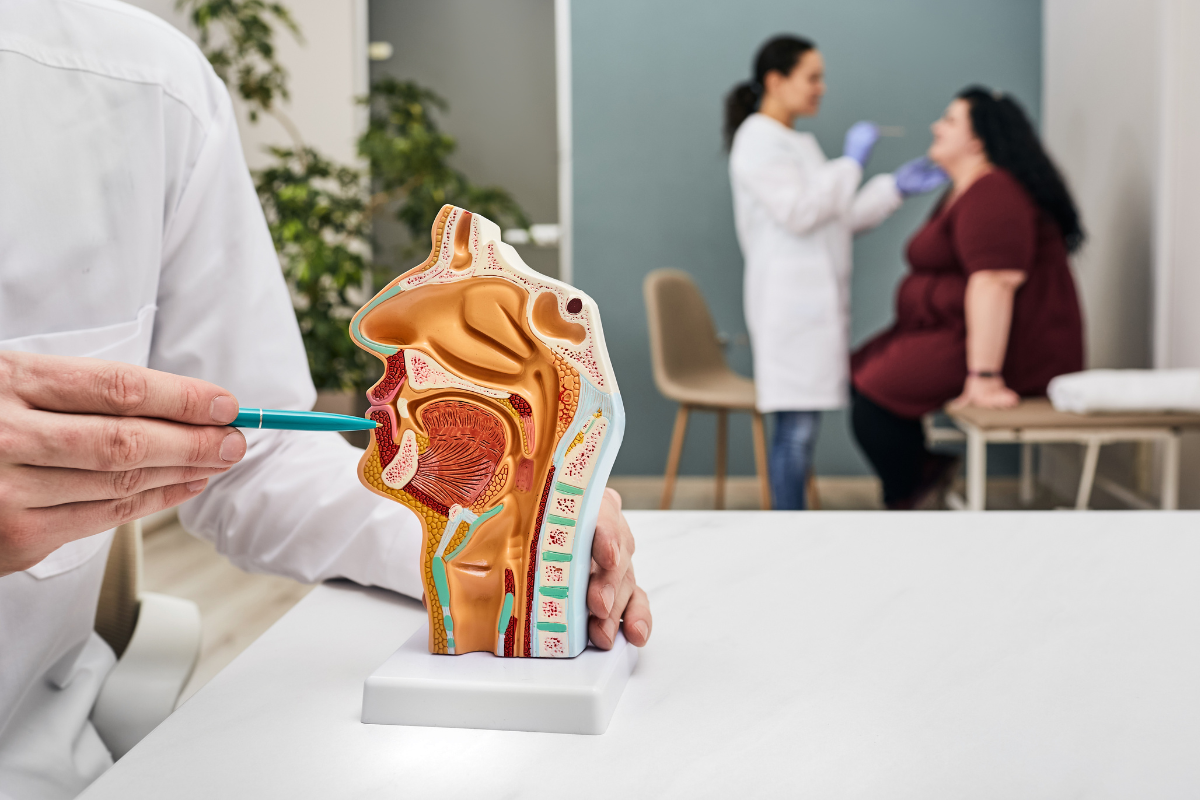- Anesthesiology
- Cardiology
- Dermatology
- Dialysis
- Endocrinology
- ENT
- Gastroenterology
- General medicine
- General surgery
- Gynaecology
- Infertility
- Intensive care
- Laparoscopic surgery
- Nephrology
- Neurology
- Obstetrics
- Oncology
- Orthopedics
- Pediatric
- Physiotherapy
- Plastic surgery
- Psychiatry
- Pulmonology
- Radiology
- Urology

The Altor Hospital Ear, Nose, and Throat (ENT) Centre brings together otolaryngologists, audiologists, and speech therapists in a centre expressly built for the diagnosis and treatment of ear, nose, and throat diseases, with a focus on Cochlear Implant Services for total deafness. Ear infections, hearing loss, vertigo, and facial paralysis can result from untreated ear illnesses. Our Altor Hospital Otolaryngologists (ENT doctors) and specialty-trained otologists/neurotologists treat these disorders' root causes.
Why choose Altor Hospital for ENT?
The medical professionals here at Altor Hospital examine the patient as a whole in order to determine how best to treat the underlying issues that are causing head and neck pain. Depending on the patient's condition, the specialists coordinate care across multiple departments, including plastic surgery, Speech and Audiology, ophthalmology, neurosurgery, dentistry, pulmonary medicine, Endocrinology, Neurology, Oncology, Dentistry, and any other fields that might be required.
Conditions we treat for ENT
Ear
- Ottis media
- Hearing impairment
- Perforated ear drum
- Menier’s disease
- Ottis externa
- Mastoiditis
- Deafness
Nose
- Rhinitis
- Allergies
- Deviated nasal septum correction
- Epistaxis
- Sinusitis
- Nasal polyp
Throat
- Laryngitis
- Tonsillitis
- Sore throat
- Reinke’s dysphonia
- Dysphonia
- Spasmodic dysphonia
- Thyroid and parathyroid problems
Surgeries in ENT
- Tonsillectomy
- Laryngotracheal reconstruction
- Rhinoplasty
- Tumour of nose, trachea, sinuses
- Paediatric obstructive sleep apnea
- ENT surgery
- Nasal endoscopy
FAQs
I have sinus infections all the time. Is this standard?
It happens when the sinus lining swells and becomes irritated. This could cause sinus pain or pressure, infection, nasal discharge, and obstruction of the nasal passages. Surgery may be an option if medical treatment is unsuccessful.
What symptoms indicate hearing loss?
Hearing loss symptoms include trouble hearing in crowded spaces with distracting background noise, asking others to repeat themselves, feeling as though others are stumbling or not speaking properly, turning up the TV or radio louder than others, and experiencing ringing or buzzing in the ears. You can suffer depression and start to retreat from social situations in an effort to avoid interaction.
What further illnesses result in nasal obstruction?
Nasal obstruction can develop from sinusitis, a deviated septum, enlarged nasal turbinates, enlarged adenoids, or nasal polyps in addition to sinusitis. When necessary, these problems can be treated surgically.
How may an ear infection be treated?
Most ear infections usually heal on their own in a week or so. Warm compresses, eardrops, and over-the-counter drugs can all be used to treat pain. Antibiotics are recommended if a bacterial infection is the cause. Ear tubes may help children who have recurrent ear infections.
